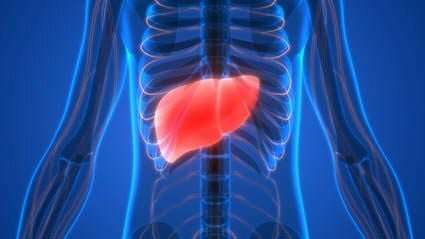This article has been reviewed according to Science X's editorial process and policies. Editors have highlighted the following attributes while ensuring the content's credibility:
fact-checked
peer-reviewed publication
reputable news agency
proofread
Guidelines developed for management of alcohol-associated liver disease

In a clinical guideline issued by the American College of Gastroenterology and published in the January issue of the American Journal of Gastroenterology, recommendations are presented for the management of alcohol-associated liver disease (ALD).
Noting that increasing alcohol use during the past decade has resulted in rapid growth of the ALD-related health care burden, Loretta L. Jophlin, M.D., Ph.D., from the University of Louisville Health in Kentucky, and colleagues developed clinical guidelines for ALD.
The authors note that alcohol-associated hepatitis (AH) is a unique phenotype of advanced disease, presenting with rapid onset or worsening of jaundice and acute-on-chronic liver failure, which conveys a one-month mortality risk of 20 to 50 percent in severe forms. The most accurate score for stratifying AH severity is the Model for End-Stage Disease Score.
For patients with severe AH, the only available therapeutic with proven efficacy is corticosteroids, providing survival benefit at one month in 50 to 60 percent of patients. For ALD patients with concurrent alcohol use disorder (AUD), abstinence of alcohol use is challenging to achieve.
Patients with ALD are rarely treated for AUD; strategies to overcome barriers to treatment are needed, and a multidisciplinary integrated care model with hepatology, addiction medicine providers, and social workers should be promoted. In selected patients with AH who are unresponsive to medical therapy and have a low risk for relapse to posttransplant alcohol use, liver transplantation should be considered.
"Policy aimed at alcohol use reduction, multidisciplinary care of the dual diagnoses of AUD and ALD, and refinement of liver transplantation algorithms for patients with severe AH are areas where research should be focused," the authors write.
Several authors disclosed ties to the pharmaceutical industry.
More information: Loretta L. Jophlin et al, ACG Clinical Guideline: Alcohol-Associated Liver Disease, American Journal of Gastroenterology (2024). DOI: 10.14309/ajg.0000000000002572
Copyright © 2024 HealthDay. All rights reserved.




















